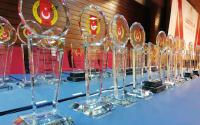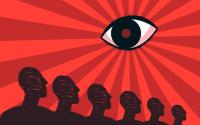4 July 2005Guardian
Call me naive, but I thought it was possible that 2005 could achieve even more than a historic breakthrough deal on debt relief and aid for Africa. The conjunction of this key political moment with a huge cultural festival, Africa 05 - television and radio programmes, festivals of music, museums all over the country hosting exhibitions - seemed to hold the promise of achieving one of those lasting shifts in public understanding of Africa.
What seemed within grasp was the start of a new relationship between the neighbouring continents of Europe and Africa - at last. Could Britain open a new page in its long engagement with Africa, finally drawing a line under the colonial themes of "saving" and "civilising" the continent? The wealth of African creativity evident everywhere - art, music, sculpture, film - would reinject into the public sphere a perception of the immense ingenuity, resourcefulness and reflective inquiry of Africans. It would shatter the myth of Africans as powerless victims at the mercy of western generosity and do-goodery.
It would help us to put back into the political landscape a sense of African agency. It would correct the media myth that the fate of millions of Africans is passively lying in the hands of eight men arriving in Gleneagles on Wednesday, and make clear that, given half a chance, Africans can shape the circumstances of their daily lives - and their often-precarious survival - far more powerfully and effectively than the G8.
The hope was that people would get to see more of Africa than starving black babies on their screens. We would get to hear about Africans much like ourselves - with the same hopes, fears and aspirations; we would, finally, begin to identify with them as human beings. That shift of perception offered a radical potential for a more equal engagement between Europe and Africa - the kind of sustained long-term relationship necessary to deal with the huge challenges to our species of climate change and Aids.
You may say that was ludicrously naive. And I begin to fear that you are right. What we are seeing now in this unprecedented media focus on Africa is a very old theme. In 1787 the slogan of the Quaker abolitionists was "Am I not a man and a brother?" But the radicalism of this rallying cry was belied by the image on the Anti-Slavery Society's seal of the African slave - he was on his knees. His liberty and dignity was ours for the giving, not his for the taking. The relationship at this G8, more than 200 years later, is similarly framed: African as supplicant to the (mostly) white men.
An entire continent has been reduced to a "scar on the conscience of the world", stripped of its dignity and left more powerless than at any intervening point since 1787. The images we saw of Africans at Live 8 on Saturday were the dying, the starving and the desperately impoverished. Postcolonialism in a globalising economy is proving even more humiliating for Africa than colonialism: its huge wealth in natural resources sequestered in secret bank accounts; its commodities commanding ever-smaller prices; its vicious wars with the exported arms of the industrial world; its government policies dictated from Washington and Geneva. Even its suffering exploited to jerk us into attention and to supply our emotional self-gratification. To the partying Hyde Park crowd, Kofi Annan said "thank you". But for what?
Blair's Africa agenda is yet another expression of what Professor John Lonsdale, the Cambridge historian of Africa, described in a lecture last week as "the self-righteously civilising mission of the past two centuries" of Europe towards its neighbour. He concluded that "it is a construction that infantilises not only Africans, unable to fend for themselves, but us too, like babies demanding the instant gratification of self-importance".
What the past few weeks have reinforced in popular perception is the absurd simplification of an entire continent so that it is explicable in terms of just four adjectives: picturesque, pitiful, psychopathic and, above all, passive. This is the formula used by such interlocutors as Bob Geldof and Rolf Harris (the BBC seems to think we won't watch Africa without a white face to show us around). In the Geldof episodes I forced myself to watch, I heard only two Africans speak - a few whispers from a frightened child, a few words from a wizened elder - and none in Harris. Sumptuous maybe, but these programmes were riddled with stereotypes - setting suns, crowds of smiling children, inexplicable crazed violence - and had little new to say. This kind of TV reflects a profound lack of curiosity in Africa; a sharp contrast to the early 20th century, when Africa revolutionised western art, or the 60s, when a wave of new African leaders drew nervous respect across Europe.
The lost opportunity that 2005 may come to represent is not for want of trying. Visit the near-empty galleries of the Crafts Council's Africa exhibition to marvel at the beauty and skill of the basket-making, the beaten silver, the woven clothes; visit the British Museum's Africa galleries to admire the beauty of El Anatsui's woven tapestries of bottle tops. All over the country this year are examples of African art's use of recycled materials - from bottle tops to bed springs, machine guns to petrol cans. But Africa 05's director, Augustus Caseley-Hayford, is bitterly frustrated at the refusal of the mainstream media to engage - a kind of wilful incomprehension that he can only see as racism.
It is almost as if the west can't accept African agency: we want the simplification of the four Ps because it so neatly caters for our fears, derived from the colonial history of the "dark continent" of Joseph Conrad fame. Is this the price that has to be paid for an instant of western attention?
The west, in its rapacious and impatient greed, destroys with contempt or indifference all that it can't appropriate for its own aggrandisement. Africa exposes - like no other continent - the hubristic arrogance of the western industrialised countries that dominate the globe and are forcing an entire species into one model of human development - a model with catastrophic shortcomings.
Now is precisely the point at which we need to learn about the genius of Africa's own history of development, which, Lonsdale suggests, lies in the extraordinary resilience and self-sufficiency to survive and adapt in habitats not always conducive to human life. The resilience is derived in part from an investment in relationships (rather than things); partly it lies in the qualities of self-disciplined willpower that sustain individuals against all the odds. These are skills we've forgotten or may never have had, but the coming centuries suggest we'll need to learn them from Africans.
If we recognised the immensity of this achievement of human endeavour over thousands of years, it might help to dismantle the self-satisfied superiority by which the west lays claim to a monopoly on concepts of progress and development. We - Africans and westerners - might begin to reframe the debate and ask ourselves if it isn't the grossly polluting G8 which is a scar on the conscience of the world.






